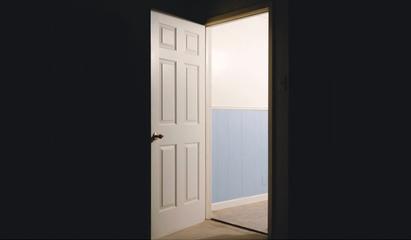
If you were going to put your life savings in the stock market, how much time would you spend researching the company you were planning to buy? You, or your financial advisor, would probably do hours or days of research before risking everything you had.
When you buy a new home, you’re investing even more than your life savings. You’re borrowing tens of thousands of dollars, or hundreds of thousands of dollars, in the form of a mortgage you’ll be paying off for thirty years.
Yet the majority of American home buyers spend only minutes checking out a house before buying it. A survey by the real estate site Zolo has found that 62% of recent home buyers in Canada spent less than an hour viewing a house before purchasing it; nearly a quarter of them just spent 30 minutes or less in the house before their home purchase.
Compare mortgage offers and save money. Get Started.
Anyone who’s gone through the home buying process can understand those numbers. Touring dozens of homes, and facing all sorts of deadlines, often short-circuits the viewing process.
But whether you’re going to spend hours or minutes deciding whether a house is your dream home – and offering to spend hundreds of thousands of dollars on it – you owe it to yourself to make the most of that time.
How do you do that? By asking the right questions.
Here’s a guide on what to ask. It should be particularly useful for first-time homebuyers.
Important Questions to Ask Your Realtor
It’s crucial to learn about the community and neighborhood where you’re buying, preferably before house hunting and certainly before making an offer. A good real estate agent or buyer’s agent should be able to answer most of these questions fairly easily.
- How good is the school district? Is it ranked nationally or locally?
- How close are the nearest hospitals, stores and other common services?
- Are there any local nuisances to be aware of, like constant construction or traffic, train tracks, or areas where police must patrol regularly?
- Is there a HOA (homeowners’ association) that requires membership and regulates home design and improvements?
- How long is the commute to the nearest major city?
- How hot (or cold) is the area’s real estate market?
There are also a number of important details specific to each property, all of which will play a major role in deciding how much to offer for a house. Your realtor should be able to answer most of them for you.
- How does the asking price compare to the home’s market value?
- What’s the median home value in the immediate neighborhood, and what have similar houses sold for recently?
- How long has the house been on the market? Have there been reductions in the asking price since it was listed?
- What was the previous sale price for the house? (This can tell you if the current owner will be making a big profit over what they paid the previous owner, and may be more flexible on the selling price.)
- Is this a distressed or short sale?
Best Questions to Ask the Seller
Bear in mind that someone selling their home may not respond completely honestly to any questions they’re not legally obligated to answer truthfully. In most cases, you won’t even get to talk to the seller directly, unless it’s a FSBO (For Sale By Owner) property.
You can, however, ask their realtor anything you’d like – or more commonly, you can have your agent ask theirs. Their representative may not be able to (or want to) answer, and their responses may be incomplete at best. But more information is better than no information, and your realtor can often help you read between the lines.
Why are you selling the house?
There are two reasons to ask this question, assuming you can get an honest answer. If the neighborhood or schools have gotten worse in recent years or there’s an issue with flooding, for instance, that can warn you away before you get into trouble.
More importantly, if the sellers are motivated (for example, they must be out of the house by a certain date to start a new job in a different city), they may be willing to accept a lower offer.
What are the neighbors and the neighborhood like?
You may not get a straight answer, but you never know. You could hear details or stories about noise, crime or poor city services that make you think twice about moving into the neighborhood. Driving around and asking other residents about the neighborhood can also be revealing.
Have there been previous problems with the house, or repairs which have been necessary?
Seller disclosures and home inspections only tell you about current issues. If you can find out about major issues which have had to be fixed in the past, like constantly-clogged sinks or a leaky roof, that may reveal other problems to look for – like a bad sewer line or post-flood mold – that a routine home inspection might not uncover.
It’s also a good idea to ask for a C.L.U.E. (comprehensive loss underwriting exchange) report, which will detail any homeowners insurance claims filed over the last seven years. A buyer can’t ask for it directly, only a homeowner can.
What additions or major renovations have been completed?
City or county records and MLS listings aren’t always accurate, particularly if a homeowner has done his own work without the necessary approval and permits. Ask for documentation outlining the home improvements that have been done to ensure they are up to code. If they haven’t, and you’re the owner, you’re on the hook for any violations found later on.
How old is the roofing, the furnace or HVAC systems, and other important fixtures?
Roofs, heating systems and appliances all have a predictable life span. If you know ahead of time that the house will soon need a new roof or furnace, you can adjust your offer, include the expense in your home budget, or walk away if necessary.
Is the home located in a flood plain?
This should be disclosed by the seller, but it doesn’t hurt to ask again. You may find out that flooding or other natural disasters like tornadoes are relatively common, even if the home isn’t in a designated flood plain or disaster-prone region.
What’s included with the sale?
Anything attached to the house, like cabinets, faucets and water heaters, are usually included when you buy a house. Not all appliances automatically transfer, though, so it’s best to be clear (and to write into the purchase and sale agreement) whether washers and dryers, outdoor play structures or other non-attached items will be sold along with the house. And if there’s something you want that the seller hasn’t initially included, such as a pool table or outdoor furniture, there’s no harm in asking.
Are there other offers on the home?
The seller probably won’t tell you, but their agent may tell yours. Knowing the competitive environment is a huge plus when preparing offers or counteroffers.
Are you willing to include a home warranty?
If not, you should buy one on your own. Homeownership shouldn’t be a gamble.
Big Questions to Ask Your Home Inspector
Almost everything you need to know about the current condition of the home – and any visible issues which will need repair – will be in the home inspector’s final report. That report may be 100 pages long and hard to understand, though. Tagging along during a home inspection is never a bad idea. Not only will you see first-hand whether it’s truly in move-in shape or actually a fixer-upper, but you can ask specific questions while he’s doing the inspection.
A few you may want to consider:
- Is there sufficient insulation in the walls and ceiling?
- Are you testing for radon and checking for lead paint?
- Are there any foundation or structural issues that should make me think twice about buying?
- Are there issues on your report I should have an expert inspect or repair?
And perhaps the most important question you can ask about a troubling issue he may have highlighted: Is that normal wear and tear, or really a problem?
Key Questions to Ask Your Lender
Once your loan application has been submitted, it may seem like you’re on a moving train that can’t be stopped. If you have questions about what you’re signing up for, the time to ask is before you give the go-ahead to your bank or mortgage broker.
- Is there another mortgage program available which might lower my costs?
- Can I get a better interest rate if I make a higher down payment?
- Can I buy down the interest rate if I pay points upfront?
- What should I expect my monthly mortgage payment to be? Does that include property taxes and homeowners insurance? (Using a payment calculator like Bankrate’s may not be completely accurate.)
- What should I expect the closing costs to be?
Here’s the bottom line. A wise man once said “There’s no such thing as stupid questions, only stupid people.” That may be a harsh way to put it, but the only “stupid” move is to buy a home and commit to a mortgage when you still have important, unanswered questions about the transaction. It’s always better to ask now – than to be surprised later.
The best way to organize those questions, by the way, is by using our comprehensive checklist on how to buy a house.


